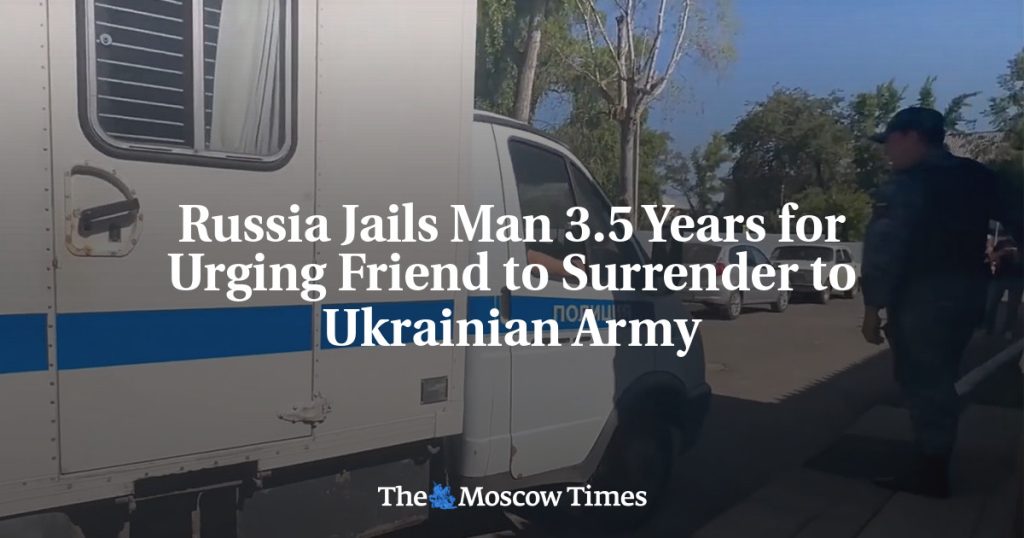In the Saratov region of southern Russia, a man named Ilya Usoyan was sentenced to three and a half years in prison for attempting to persuade his friend to surrender to the Ukrainian army. Usoyan, a 31-year-old farmer, was accused of repeatedly persuading a Russian soldier in Ukraine to surrender. The soldier in question was a friend of Usoyan, who had gone to fight in Ukraine months before. It is unclear whether the friend was a volunteer, contract, or mobilized soldier. Usoyan’s lawyer stated that Usoyan had learned that his friend was in a difficult situation in Ukraine and had tried to connect with him through a Ukrainian website.
Usoyan pleaded guilty to the charges against him, and the Regional FSB branch’s press service reported that the Rtishchevsky District Court found him guilty and sentenced him to three years and six months in a medium-security prison. The lawyer representing Usoyan also mentioned that he represented the soldier friend, but did not disclose the charges against him. The soldier friend had completed his military service, returned, and was acquitted. Mediazona had previously reported that a significant number of Russian soldiers were being put on trial for desertion and service evasion charges in 2023, with many of them receiving suspended sentences so they could return to fight in Ukraine.
The media coverage surrounding Usoyan’s case highlights the challenges faced by independent news outlets in Russia. As The Moscow Times, an independent news source, has been branded as a “foreign agent” by the Russian government, there is a growing concern about the suppression of independent journalism. The journalists at The Moscow Times continue to uphold their commitment to providing accurate and unbiased reporting on Russia, despite facing obstacles from the government. They rely on the support of their readers to continue their critical mission of reporting on Russia’s political and social issues.
The sentencing of Usoyan sheds light on the complexities of the conflict in Ukraine and the consequences faced by individuals who are involved in it. Despite the ongoing conflict and tensions between Russia and Ukraine, there are instances of personal connections and friendships that transcend national borders. Usoyan’s attempt to help his friend in Ukraine led to legal repercussions for both of them, reflecting the challenges faced by individuals caught in the midst of geopolitical conflicts. The support and legal representation provided to Usoyan and his friend demonstrate the importance of legal advocacy in cases involving sensitive political issues.
The legal proceedings and sentencing of Usoyan underscore the strict enforcement of laws related to military service and loyalty in Russia. The fact that Usoyan was sentenced to a medium-security prison for his actions indicates the severity of the charges against him. The legal system in Russia takes a strong stance against actions that could be perceived as disloyal to the state or detrimental to national security. This case serves as a reminder of the consequences that individuals may face for involvement in activities that are deemed threatening to the government or the country’s interests. The sentence handed down to Usoyan reflects the government’s commitment to upholding the rule of law and maintaining order within its borders.
Overall, the case of Ilya Usoyan and his friend highlights the complex dynamics of loyalty, friendship, and legal obligations in the context of international conflicts. The involvement of individuals in conflicts such as the one between Russia and Ukraine can have far-reaching consequences, not only for the individuals directly involved but also for their families, friends, and communities. The media coverage of Usoyan’s case also raises important questions about the freedom of the press and the role of independent journalism in holding governments accountable. As the situation in Ukraine continues to evolve, cases like Usoyan’s underscore the need for a nuanced approach to understanding the human impact of conflicts and the legal ramifications that may follow.


